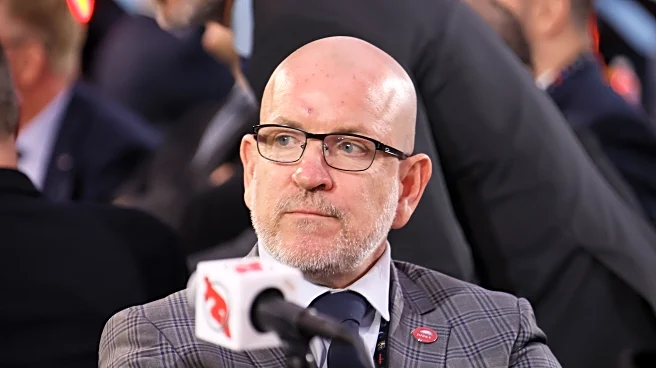Rapid Read • 8 min read
Noland Arbaugh, the first recipient of a brain chip implant from Elon Musk's Neuralink, has experienced significant life changes 18 months post-surgery. Arbaugh, who lost movement below his shoulders due to a swimming accident in 2016, received the implant in 2024. The Neuralink device, implanted via a surgical robot, connects over 1,000 electrodes to his brain neurons, translating brain signals into digital commands. This technology allows Arbaugh to control his computer, play video games, and manage household devices without physical movement. He uses the device extensively for studying and gaming, and is now pursuing community college courses and planning to start a business. Despite initial setbacks with the device, Arbaugh remains optimistic about its potential to enhance his autonomy.
AD
The success of Neuralink's brain chip in improving Arbaugh's quality of life highlights the potential of brain-computer interfaces (BCIs) to transform the lives of individuals with severe disabilities. This technology could revolutionize how people with mobility impairments interact with their environment, offering new opportunities for education, employment, and personal independence. The broader implications for healthcare and assistive technology industries are significant, as BCIs could lead to new therapeutic approaches and devices. However, ethical considerations regarding privacy, consent, and the long-term effects of such implants remain critical areas for ongoing discussion.
As Neuralink continues to refine its technology, further clinical trials and regulatory approvals will be necessary to expand its availability. The company may face scrutiny from medical professionals, ethicists, and regulatory bodies as it seeks to commercialize its brain-computer interface. Public interest and investment in BCIs are likely to grow, potentially accelerating advancements in related fields. Arbaugh's experience may serve as a case study for future patients considering similar procedures, influencing public perception and acceptance of neural implants.
The development of BCIs like Neuralink's raises important questions about the integration of technology with human biology. As these devices become more sophisticated, issues of data security, user autonomy, and the potential for misuse must be addressed. The concept of 'cyborgs'—humans enhanced by technology—challenges traditional notions of identity and capability, prompting societal and cultural shifts in how disability and enhancement are perceived.
AD
More Stories You Might Enjoy












